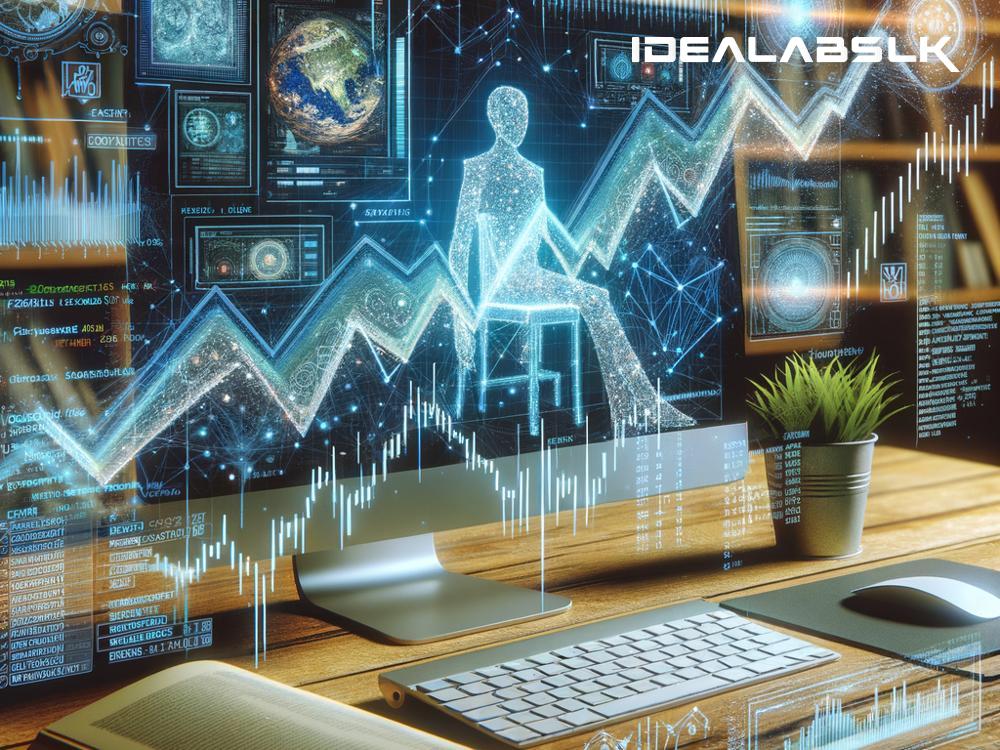The Rise of AI in Trading: Transforming Financial Markets
In today's fast-paced financial world, Artificial Intelligence (AI) is no longer a futuristic concept but a reality that is reshaping how trading is done. The integration of AI in trading platforms and investment strategies is revolutionizing the financial markets. From executing orders at lightning speeds to analyzing vast amounts of data for predictive insights, AI's role is undeniably powerful and transformative. Let's dive into how AI is changing the game of trading and why its impact is so significant.
AI: The Genius Behind Modern Trading
At its core, AI in trading involves using computer algorithms and machine learning to predict market trends, make trading decisions, and execute trades at optimal times. But what sets AI apart from traditional trading methods? The answer lies in its unparalleled computational power and predictive accuracy.
Here's a simple analogy: Imagine trying to solve a massive jigsaw puzzle, but this puzzle changes its picture every minute. For a human, keeping up is impossible. AI, however, can not only keep up but also predict what the next picture might look like. This capability is what makes AI invaluable in trading, where markets are volatile and patterns can shift rapidly.
Speed and Efficiency: AI's Winning Edge
One of AI's most evident advantages in trading is its speed. In a world where prices can change in milliseconds, AI algorithms can execute trades far quicker than any human could. This speed allows traders using AI to capitalize on small price changes that occur in the blink of an eye, a strategy known as high-frequency trading.
Moreover, AI's efficiency in analyzing vast datasets surpasses human capabilities. It can sift through decades of market data, news articles, and financial reports in seconds—identifying trends, anomalies, and opportunities that would likely be missed by human analysts.
Predictive Power: Peering into the Future
Perhaps the most exciting aspect of AI in trading is its predictive ability. By learning from historical data, AI can forecast future market movements with remarkable accuracy. While no prediction is entirely foolproof, AI's algorithms continuously learn and adapt, improving their forecasts over time.
This predictive power is not just about foreseeing market upswings and downturns but also about understanding the potential impacts of geopolitical events, economic indicators, or even social trends on financial markets. This comprehensive analysis allows traders to make more informed decisions, potentially leading to better investment outcomes.
Personalized Trading Strategies
AI's flexibility and learning capability mean it can tailor trading strategies to individual preferences and risk tolerances. Whether you're a conservative investor who prefers minimal risk or an aggressive trader looking for high returns, AI can adjust its algorithms to align with your goals, constantly optimizing strategies to improve performance.
The Challenges and Ethical Considerations
Despite its advantages, AI in trading is not without its challenges and ethical considerations. The primary concern relates to market fairness - the fear that AI could give certain investors an overwhelming advantage, potentially leading to market manipulation. Additionally, there's the risk that AI systems could "learn" unintended or unethical behaviors based on biased data or flawed algorithms.
Regulation and transparency are crucial to addressing these concerns. Ensuring that AI trading platforms operate within ethical boundaries and market rules is essential to maintaining fair and competitive financial markets.
The Future of Trading with AI
The trajectory of AI in trading suggests that its influence will only grow stronger, potentially making AI-driven strategies the standard. As technology continues to advance, we can anticipate even more sophisticated AI capabilities, including deeper predictive analytics and more personalized investment services.
Conclusion
AI in trading represents a powerful shift in how financial markets operate, offering speed, efficiency, predictive power, and personalized strategies that far surpass traditional methods. However, embracing AI also requires careful consideration of its challenges and ethical implications. As we stand on the brink of this new era in trading, one thing is clear: AI has the potential not just to transform the markets but to redefine them entirely. Embracing AI responsibly could lead to a more insightful, efficient, and equitable financial world.

